Employment Contract Samples
-
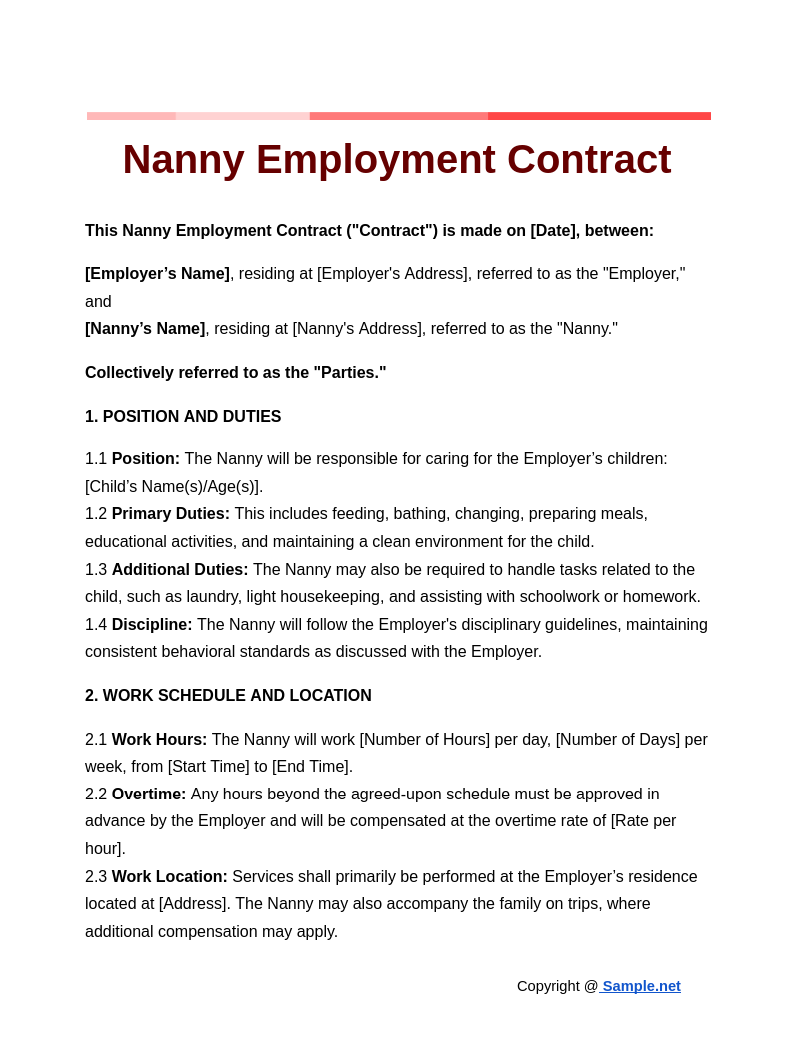
Nanny Employment Contract
download now -
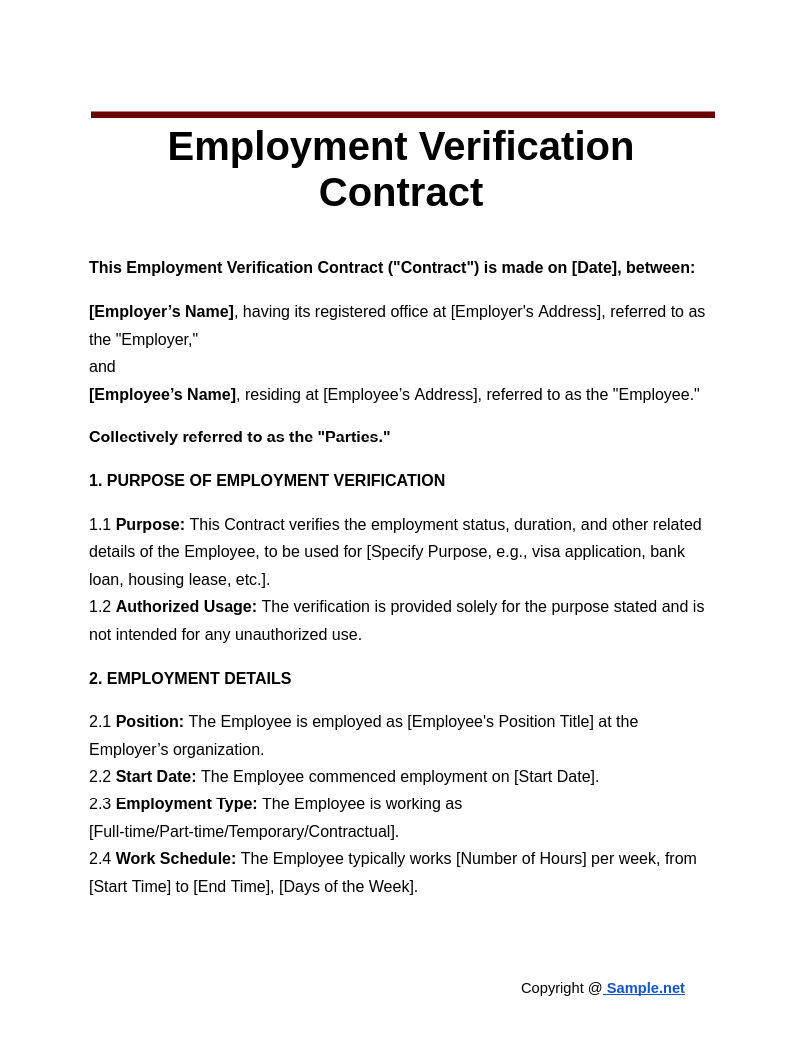
Employment Verification Contract
download now -
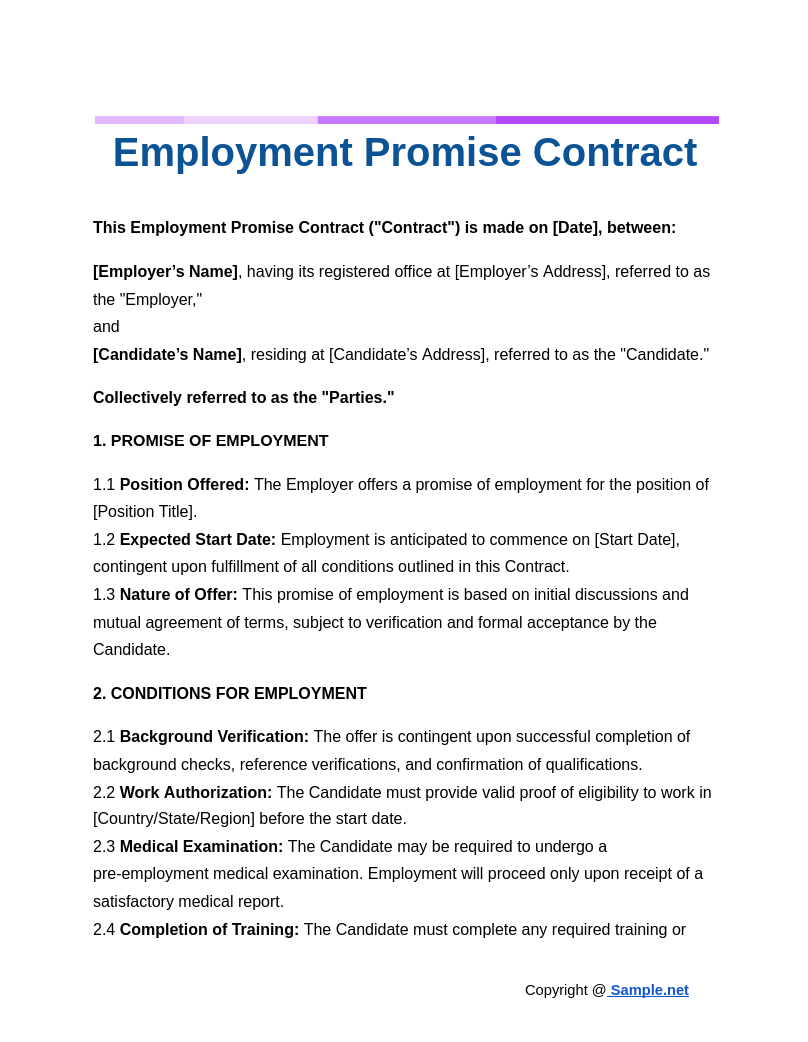
Employment Promise Contract
download now -
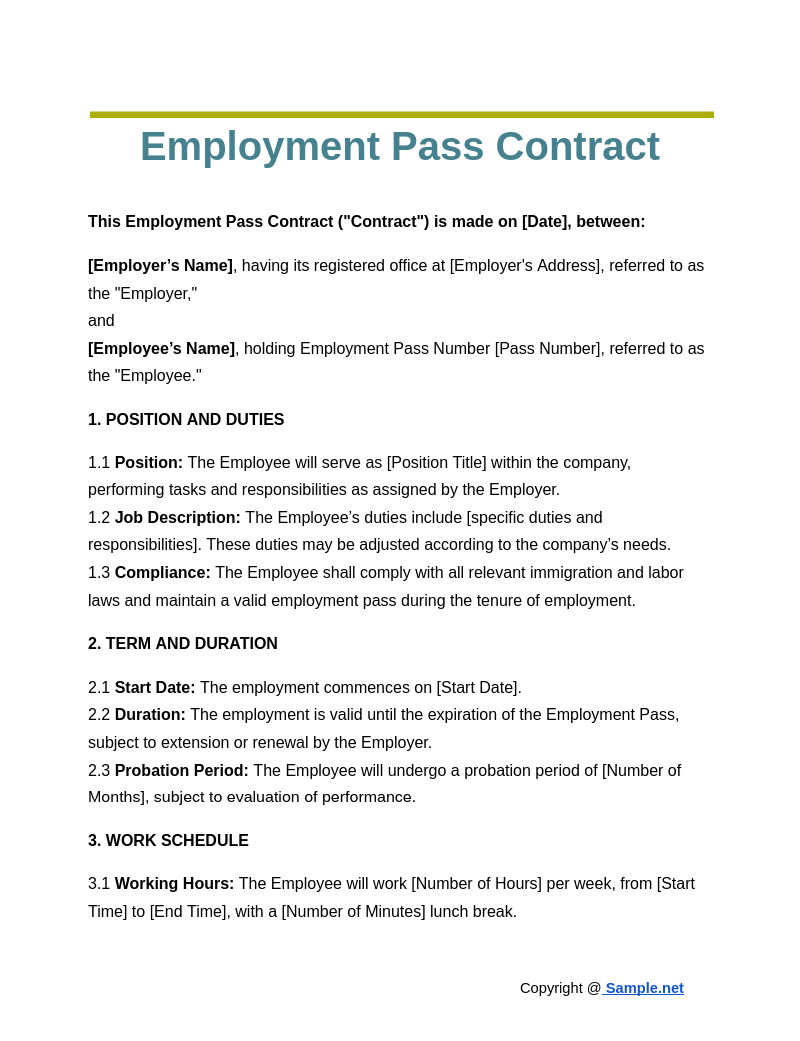
Employment Pass Contract
download now -
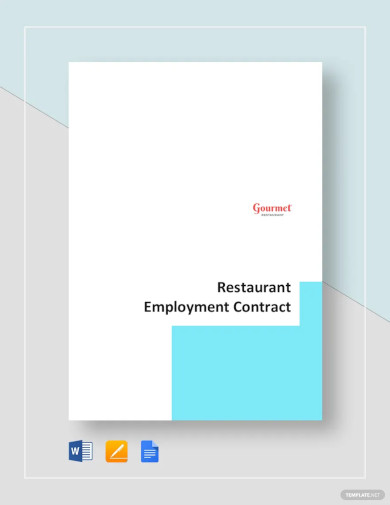
Restaurant Employment Contract Template
download now -
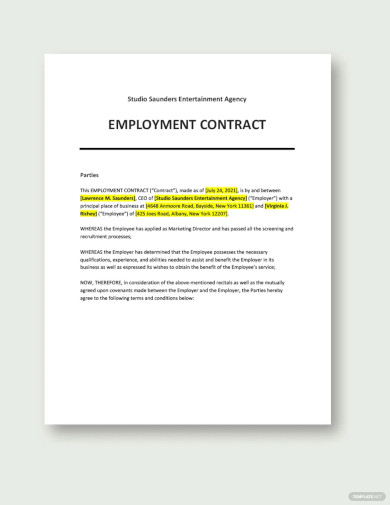
Employment Contract Template
download now -
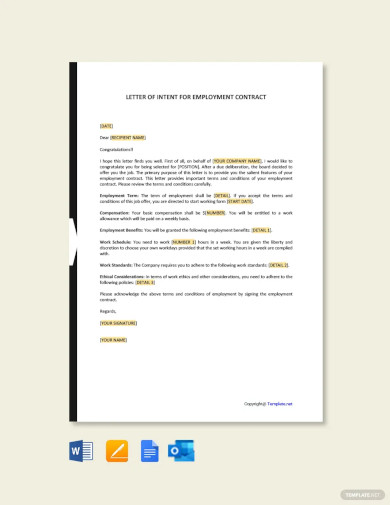
Letter of Intent for Employment Contract Template
download now -
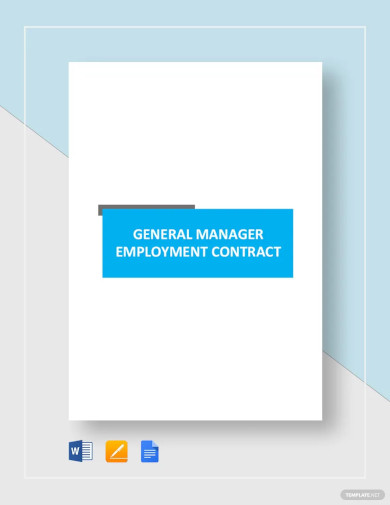
General Manager Employment Contract Template
download now -
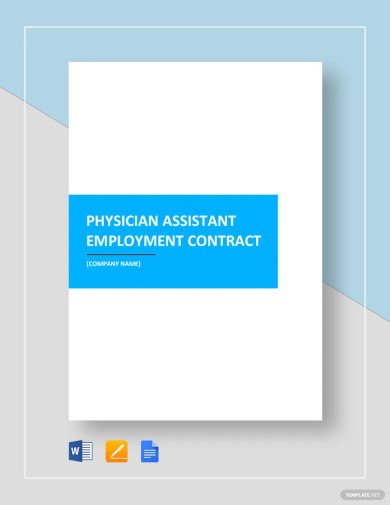
Physician Assistant Employment Contract Template
download now -
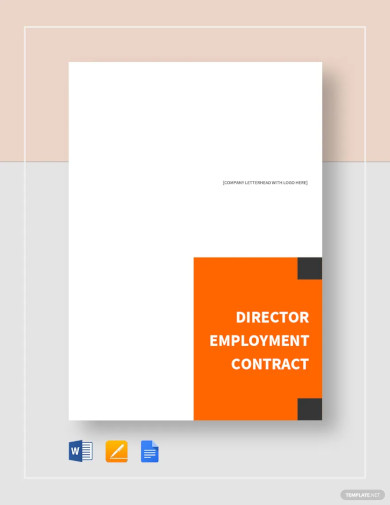
Director Employment Contract Template
download now -
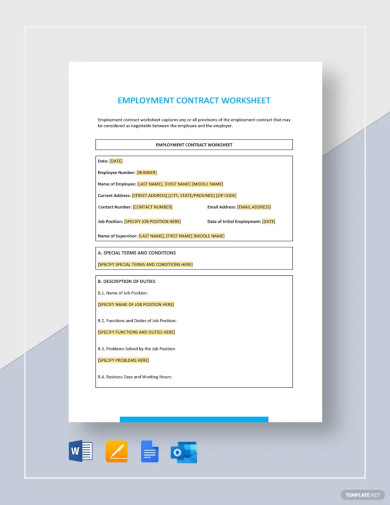
Employment Contract Worksheet Template
download now -
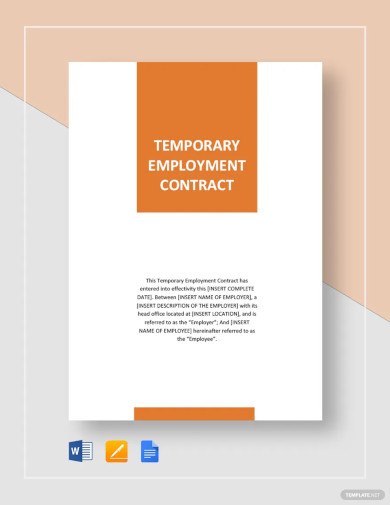
Temporary Employment Contract Template
download now -
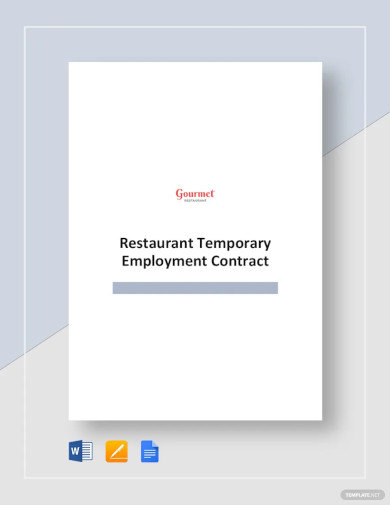
Restaurant Temporary Employment Contract Template
download now -
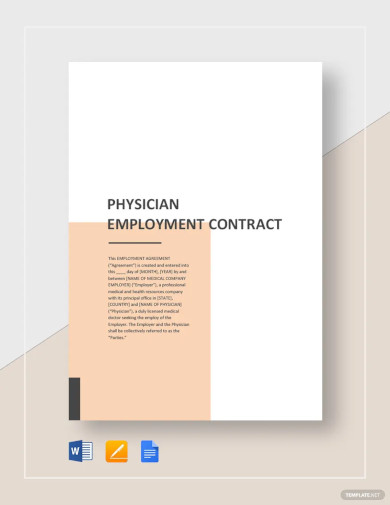
Physician Employment Contract Template
download now -
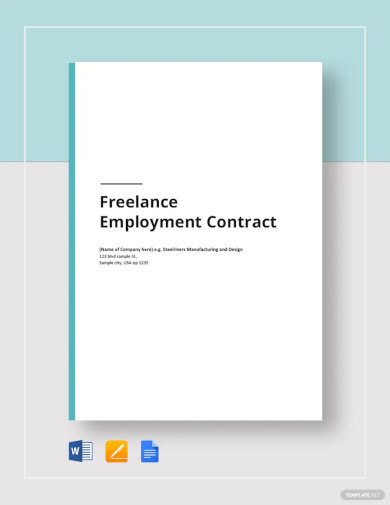
Freelance Employment Contract Template
download now -
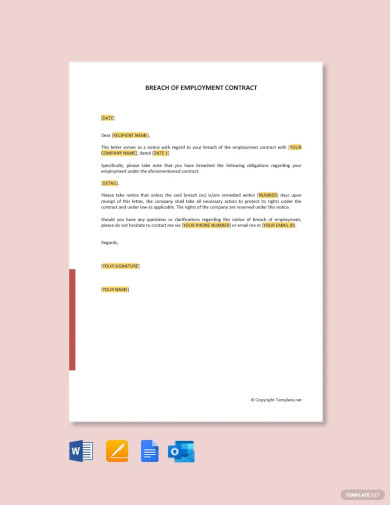
Breach of Employment Contract Letter Template
download now -
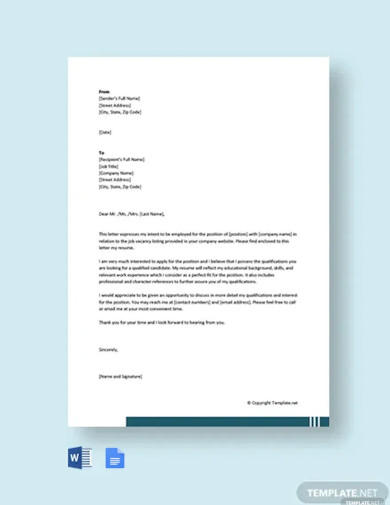
Free Sample Letter of Intent for Employment Contract Template
download now -
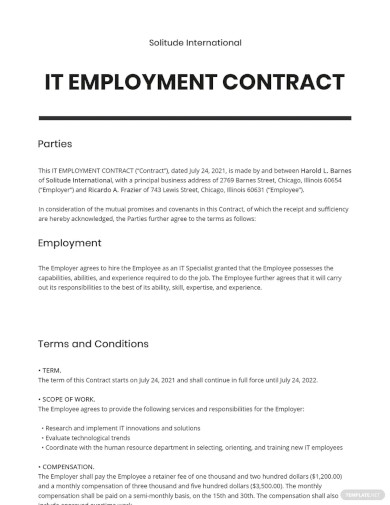
IT Employment Contract Template
download now -
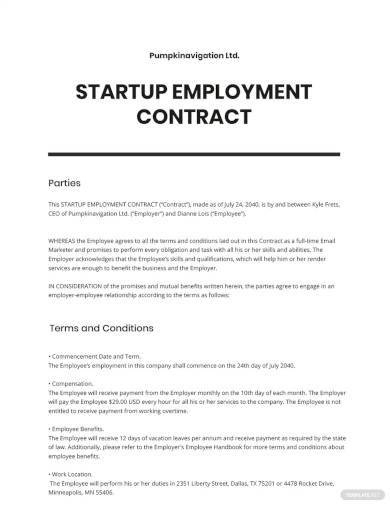
Startup Employment Contract Template
download now -
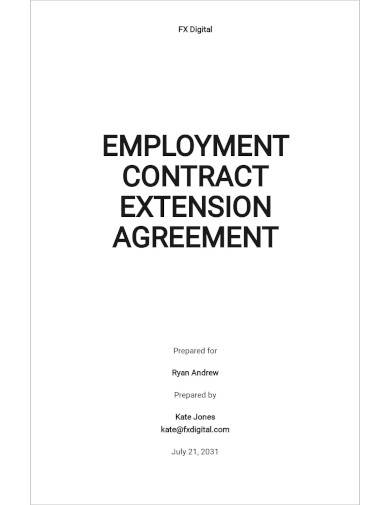
Employment Contract Extension Agreement Template
download now -

Employment Contract Letterhead Template
download now -
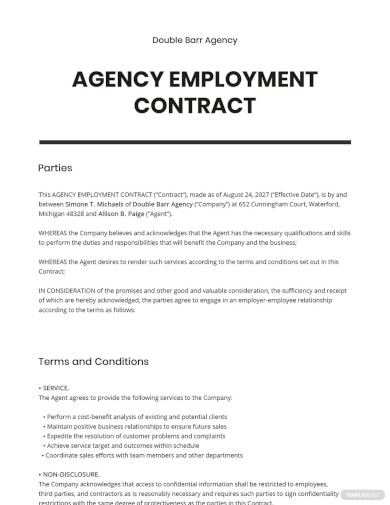
Agency Employment Contract Template
download now -
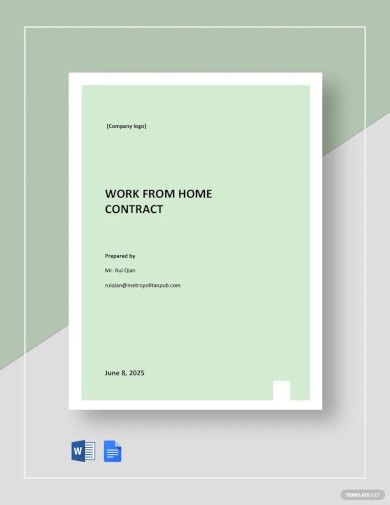
Work From Home Employment Contract Template
download now -
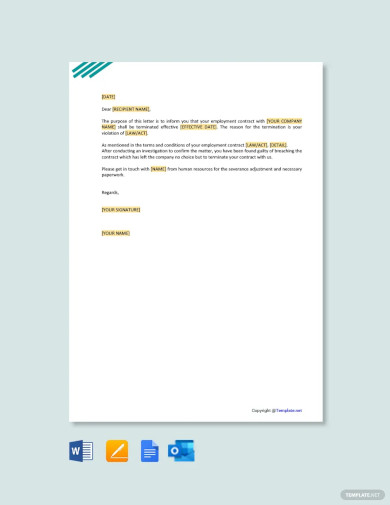
Free Employment Contract Termination Letter Template
download now -
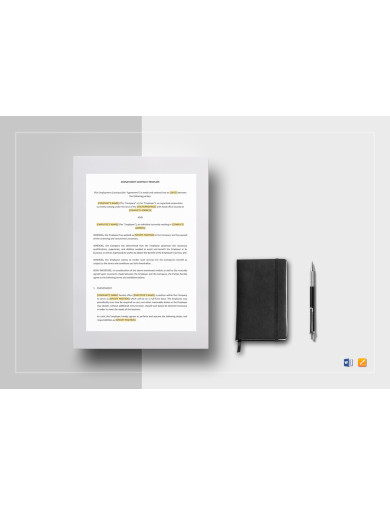
Sample Employment Contract Template
download now -
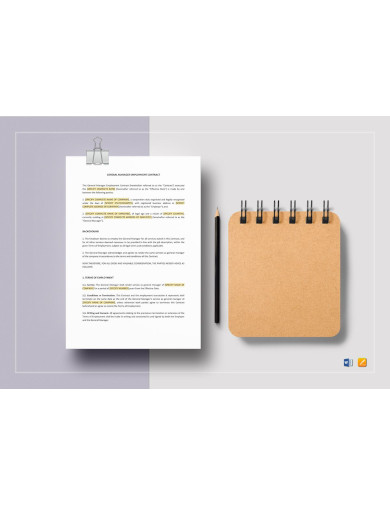
Basic General Manager Employment Contract Template
download now -
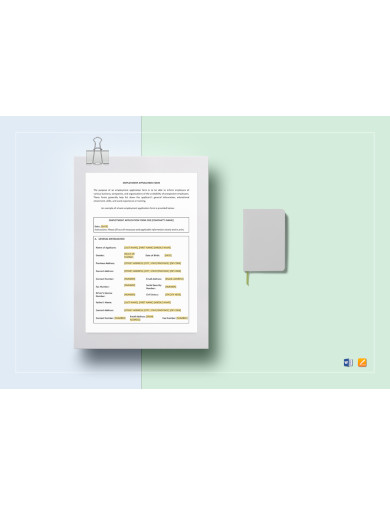
Sample Employment Contract Worksheet Template
download now -
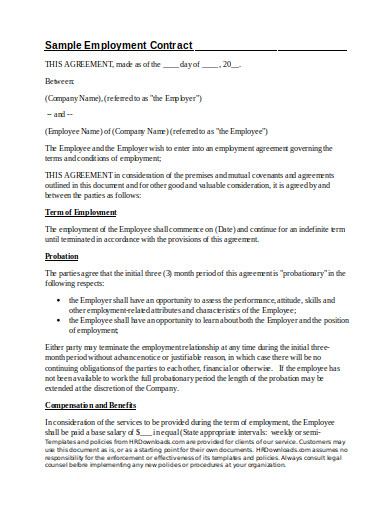
Sample Employment Contract
download now -
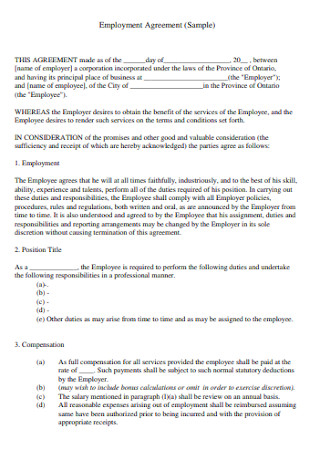
Employment Contract Agreement Sample
download now -
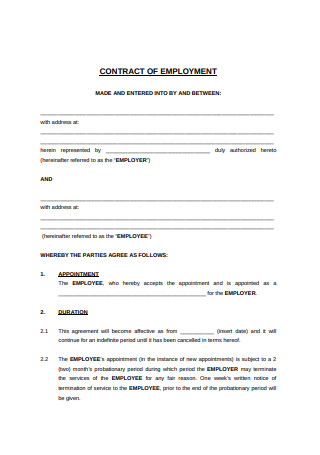
Contract of Employment
download now -
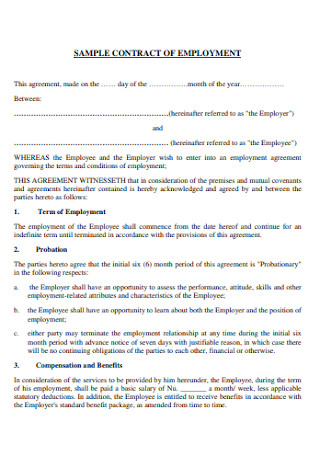
Sample Contract of Employment
download now -
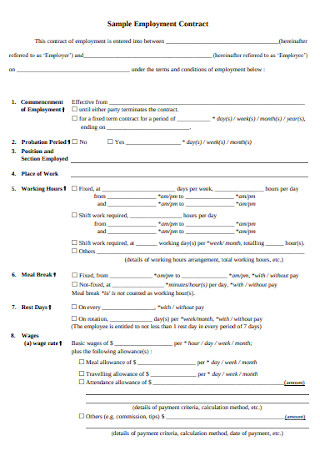
Sample Temporary Employment Contract
download now -
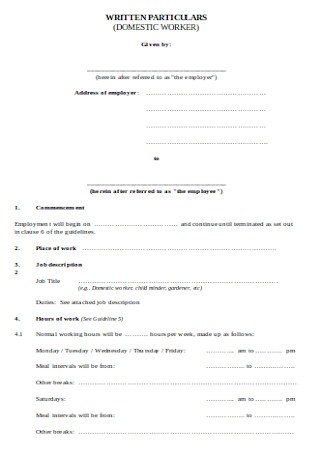
Basic Employment Salary Contract
download now -
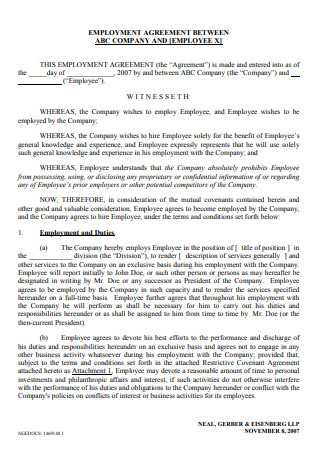
Employment Contract between Company
download now -
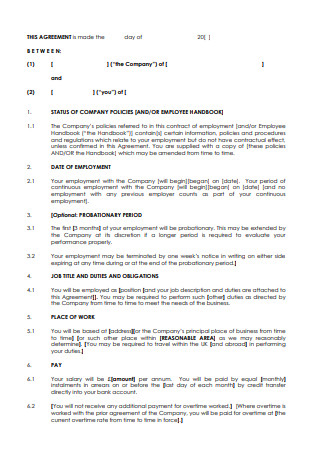
Printable Employment Contract
download now -
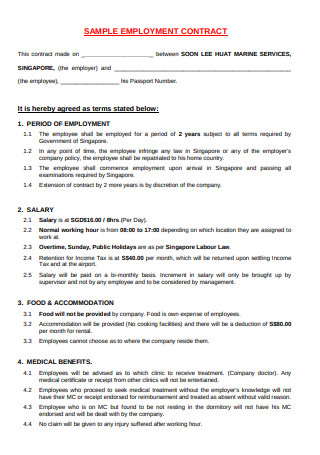
Sample Employment Contract in PDF
download now -
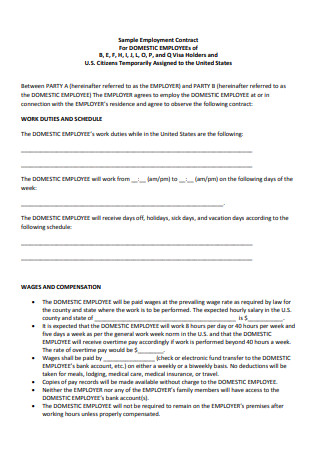
Sample Employment Contract For Domestic Employees
download now -
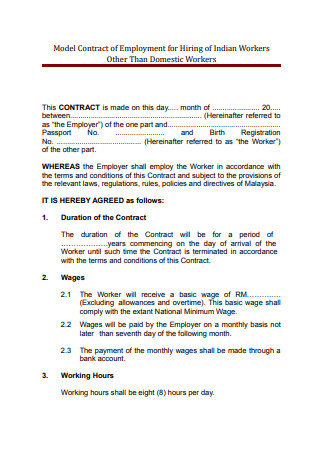
Sample Employment Contract Form
download now -
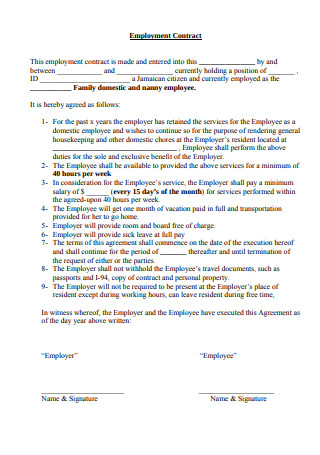
Employment Termination Contract Sample
download now -
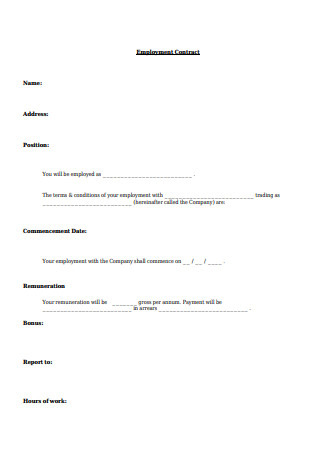
Sample Letter of Employment Contract
download now -
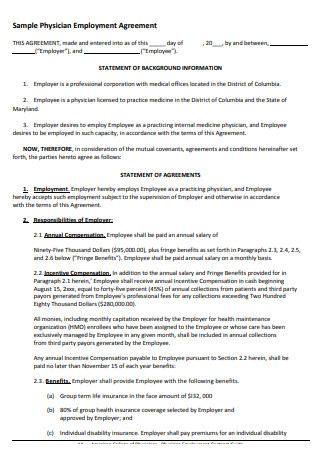
Sample Physician Employment Agreement
download now -
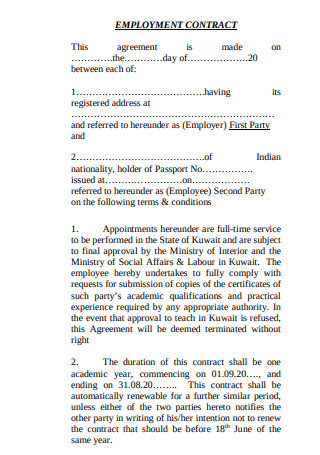
Simple Employment Contract
download now -
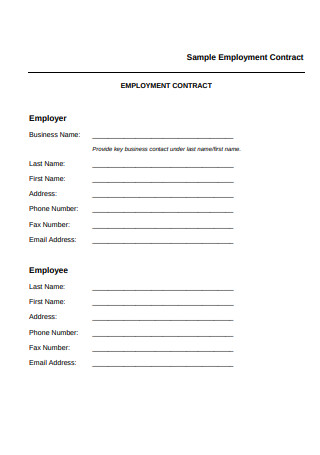
Sample Employment Contract Fixed Term
download now -
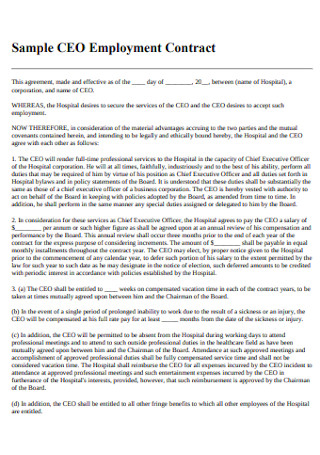
Sample CEO Employment Contract
download now -
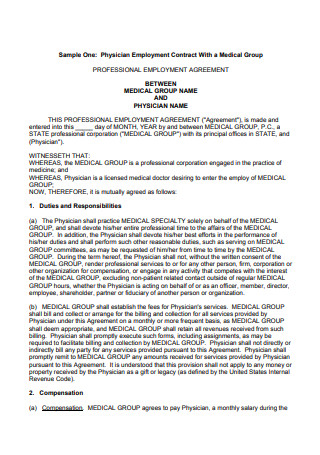
Sample Small Business Employment Contract
download now -
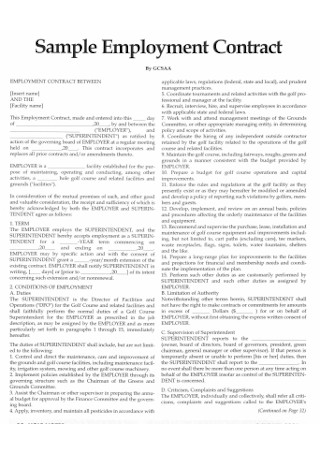
Sample Employment Contract Format
download now -
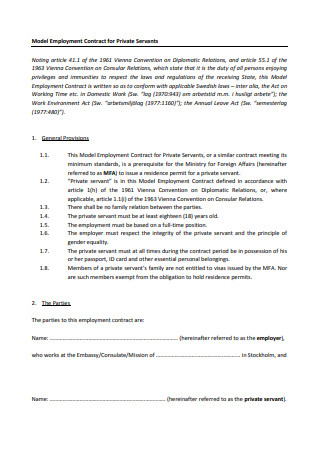
Project Based Employment Contract
download now -
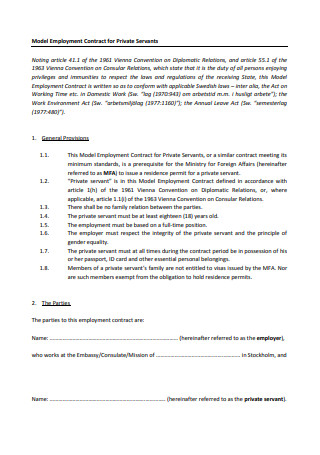
Accompany Offer Employment Contract Sample
download now -
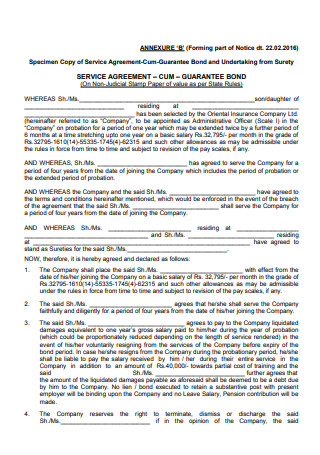
Sample Employment Service Agreement
download now -
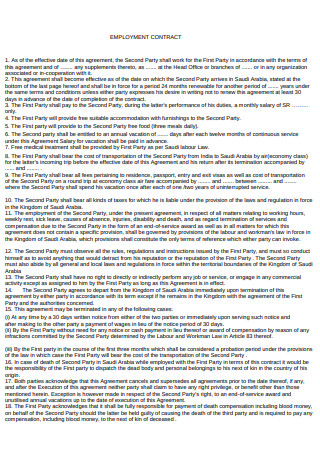
Permanent Employment Contract Sample
download now -
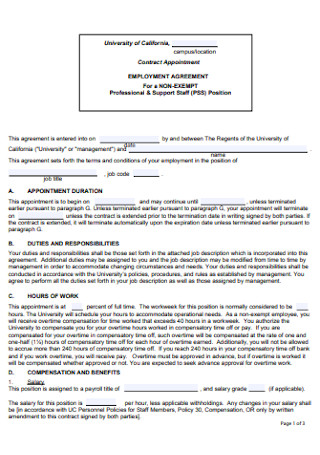
Part Time Employment Contract
download now -
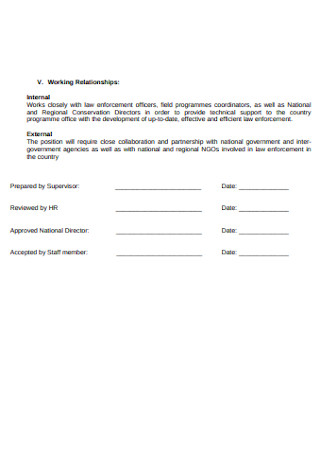
Formal Employment Contract
download now -
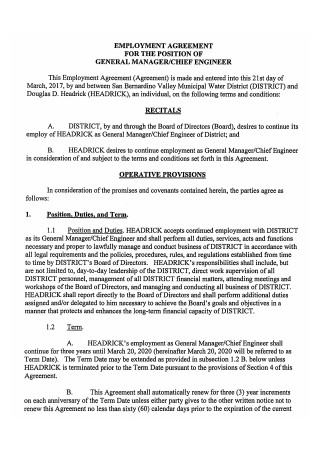
Sample General Manager Employment Contract
download now -
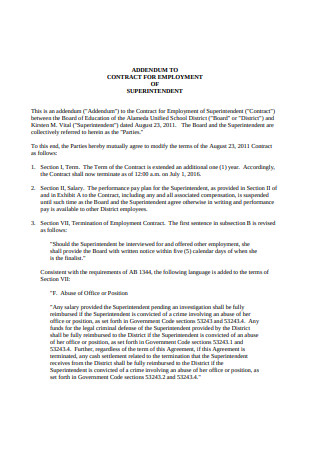
Renewal Contract for Employment
download now -
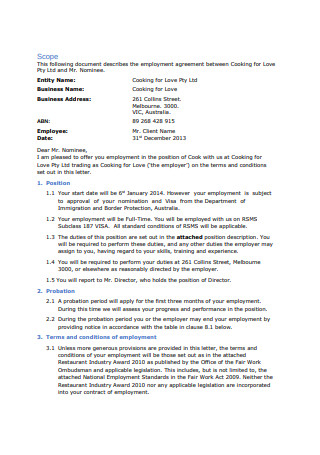
Letter of Engagement and Employment Contract
download now -
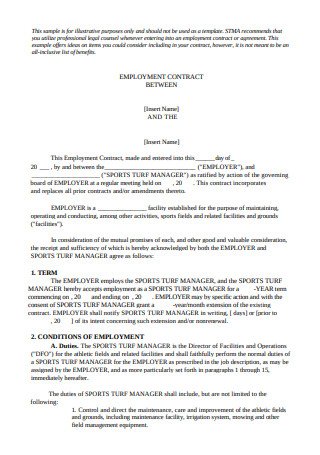
Sample Construction Employment Contract
download now -
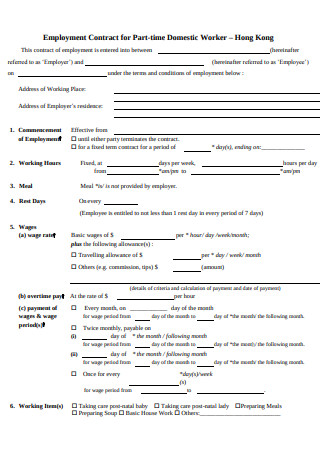
Employment Contract for Part-Time Domestic Worker
download now -
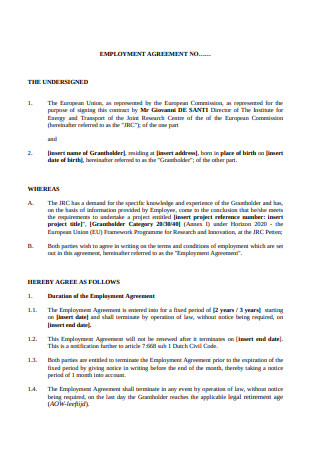
Employment Contract Contractor
download now -
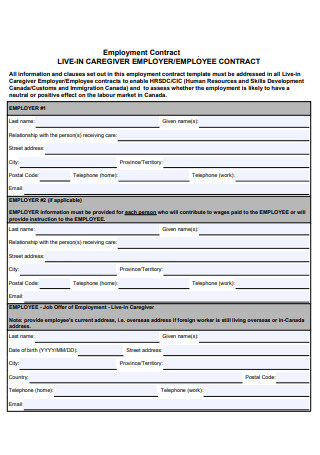
Truck Driver Employment Contract Sample
download now -
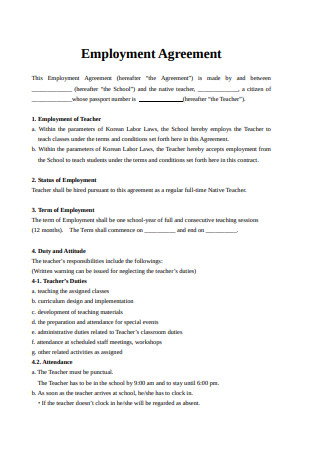
Salon Employment Agreement Sample
download now -
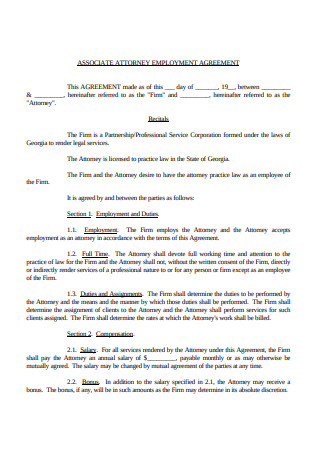
Associate Attorney 1 Year Employment Contract
download now -
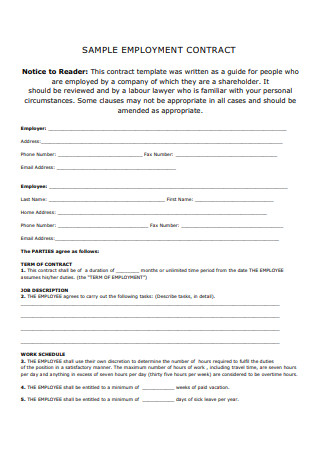
Sample Signed Employment Contract
download now -
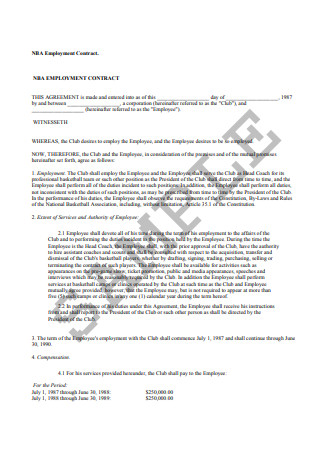
NBA Employment Contract Sample
download now -
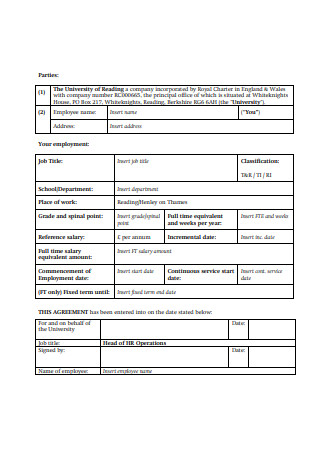
Employment contract for Senior Employees
download now -
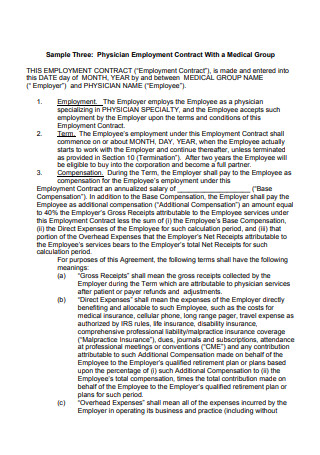
Physician Employment Contract With a Medical Group
download now -
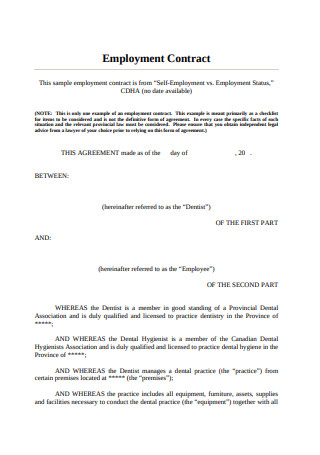
Probation Employment Contract Sample
download now -
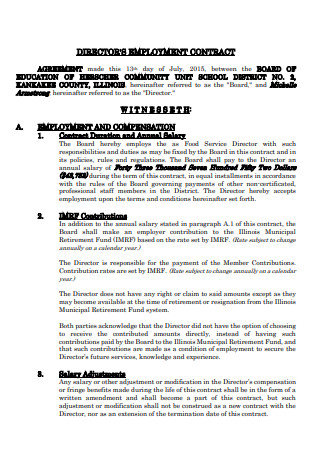
Director’s Employment Contract Sample
download now -
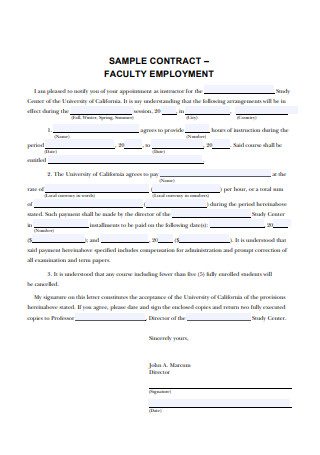
Sample Contract for Faculty Employment
download now -
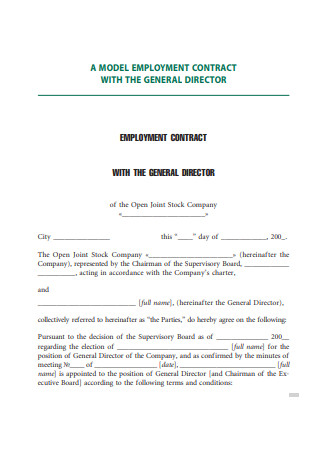
Employment Contract With General Director
download now -
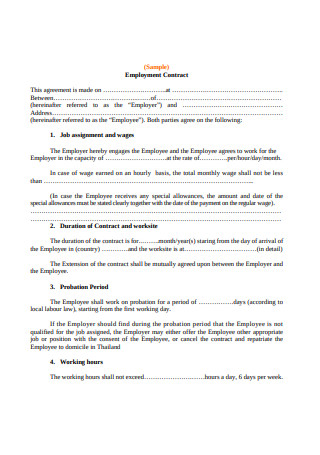
(Sample) Employment Contract
download now -
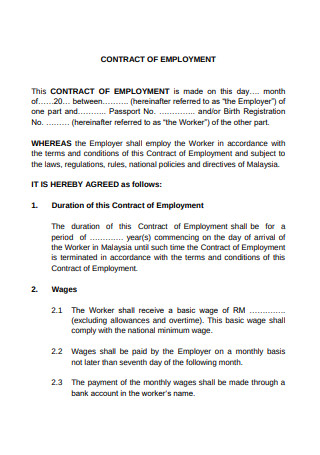
Contract of Employment Format
download now -
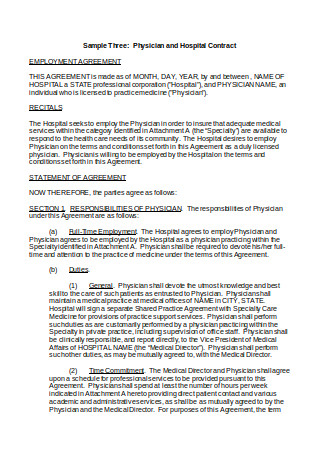
Physician and Hospital Employment Contract
download now -
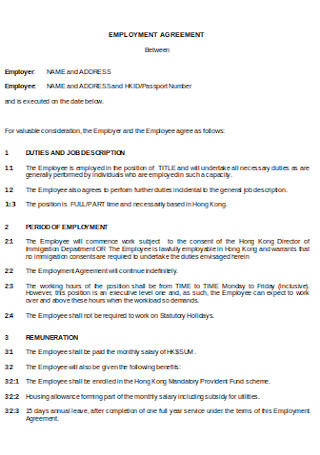
Agreement of Employment Format
download now -
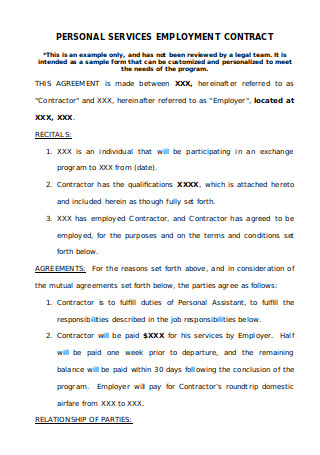
Personal Service Employment Contract
download now -
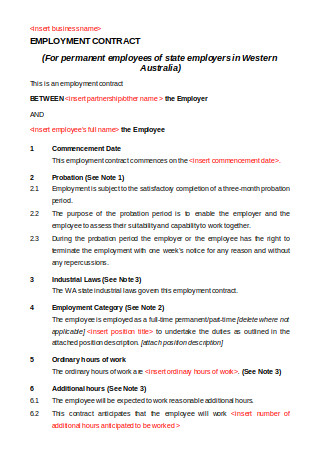
Printable Employment Contract Sample
download now -
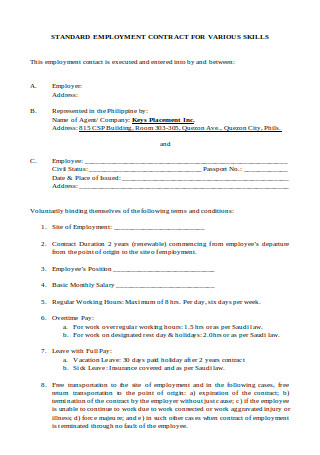
Standard Employment Contract for Various Skills
download now -
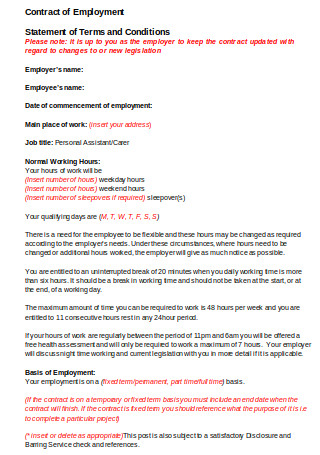
Sample Contract of Employment
download now -
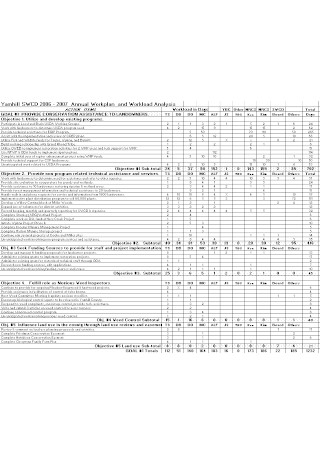
Sample Annual Work Plan Templates
download now
FREE Employment Contract s to Download
Employment Contract Format
Employment Contract Samples
What Is an Employment Contract?
Types of Employment Contracts
How to Choose the Right Employment Contract
FAQS
Why is it important to choose the right employment contract?
What factors should be considered when choosing an employment contract?
Can an employment contract be changed later?
Do freelancers need employment contracts?
What should employers include in a freelance contract?
What happens if a contract violates labor laws?
Can an employee refuse a contract type offered?
What should employees check before signing a contract?
What are the consequences of breaching an employment contract?
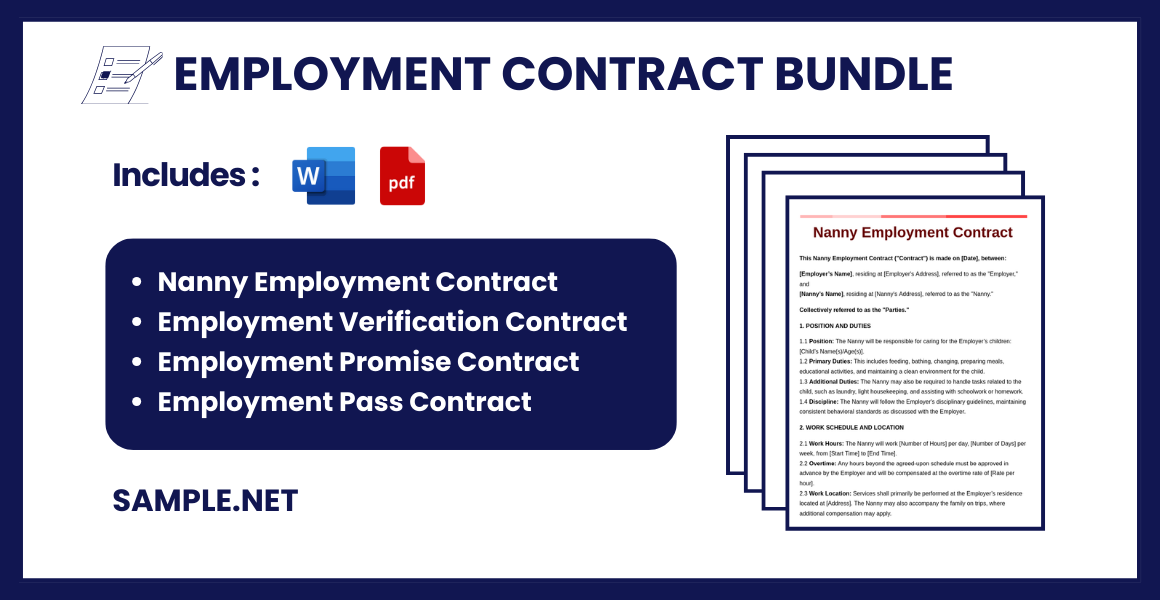
Download Employment Contract Bundle
Employment Contract Format
This Employment Contract (“Contract”) is made on [Date], between:
[Employer’s Name], having its registered office at [Employer’s Address], referred to as the “Employer,”
and
[Employee’s Name], residing at [Employee’s Address], referred to as the “Employee.”
Collectively referred to as the “Parties.”
1. POSITION AND DUTIES
1.1 Position: The Employee will serve as [Position Title].
1.2 Duties: The Employee agrees to perform the duties and responsibilities as outlined in the job description and any additional duties as required by the Employer.
1.3 Reporting: The Employee will report to [Supervisor’s Name/Position].
2. TERM OF EMPLOYMENT
2.1 Start Date: The employment shall commence on [Start Date].
2.2 Probation Period: The Employee will be on probation for a period of [Probation Period], subject to extension based on performance evaluation.
2.3 Duration: The employment is [Permanent/Temporary/Fixed-Term] and will last until [End Date/Until terminated as per the contract].
3. WORKING HOURS
3.1 Schedule: The Employee shall work [Number of hours] hours per week, from [Start Time] to [End Time], [Number of days] days per week.
3.2 Overtime: Overtime work, if required, shall be compensated as per the company’s overtime policy.
4. COMPENSATION
4.1 Salary: The Employee will receive a salary of [Amount] per [Month/Year], subject to deductions as required by law.
4.2 Payment: Payment will be made on [Date] of each [Month/Week], through [Method of Payment: Bank Transfer/Cheque].
4.3 Bonuses/Incentives: [Specify if applicable, such as performance-based bonuses, annual increments, etc.].
5. BENEFITS
5.1 Leave: The Employee is entitled to [Number of days] days of [Annual/Sick/Casual] leave per year.
5.2 Medical Insurance: The Employee will receive medical insurance coverage as per the company policy.
5.3 Other Benefits: [Specify any additional benefits, such as retirement plans, transportation allowances, etc.].
6. CONFIDENTIALITY
6.1 The Employee agrees to maintain the confidentiality of all proprietary information and will not disclose any confidential information to third parties during or after the term of employment.
7. TERMINATION
7.1 Termination by Employer: The Employer may terminate this contract with [Notice Period] days’ written notice for valid reasons.
7.2 Termination by Employee: The Employee may resign by providing [Notice Period] days’ written notice.
7.3 Immediate Termination: Either party may terminate this contract immediately for cause, including gross misconduct or breach of contract terms.
8. GENERAL PROVISIONS
8.1 Governing Law: This contract will be governed by the laws of [Jurisdiction].
8.2 Amendments: Any changes or amendments to this contract must be made in writing and signed by both parties.
IN WITNESS WHEREOF, the Parties have executed this Employment Contract on the date first above written.
[Employer’s Signature]
Name: ___________________________
Date: ___________________________
[Employee’s Signature]
Name: ___________________________
Date: ___________________________
What Is an Employment Contract?
An employment contract is a formal agreement that specifies the terms and conditions of employment between an employer and an employee. You can also see more on Employment Agreements.
Types of Employment Contracts
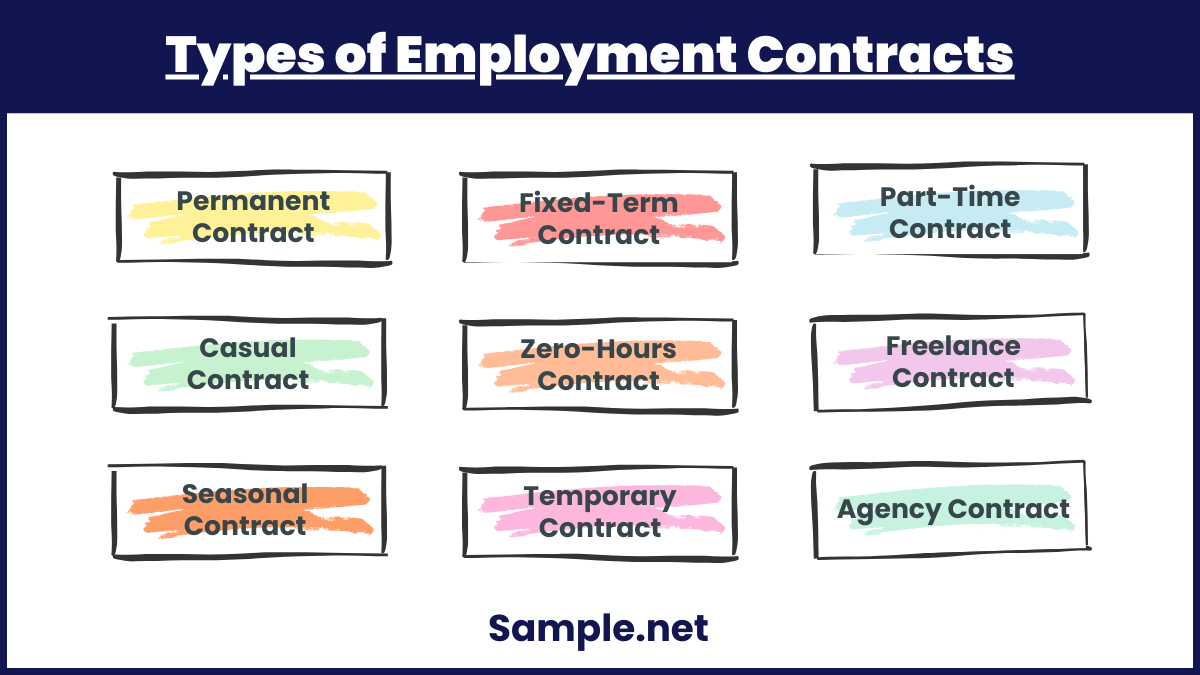
1. Permanent Contract
Provides long-term employment with no fixed end date, offering job security and benefits like paid leave and retirement plans.
2. Fixed-Term Contract
Has a specified end date or project completion, suitable for temporary roles or covering leave, with similar rights as permanent employees.
3. Part-Time Contract
Employees work fewer hours than full-time, often on a regular schedule, making it flexible for both employers and employees.
4. Casual Contract
Provides work as needed, with no guaranteed hours, suitable for jobs with fluctuating demands, offering flexibility but limited benefits.
5. Zero-Hours Contract
Employers offer work when available, but there’s no obligation to provide or accept work, suitable for on-call roles.
6. Freelance or Independent Contractor Contract
Engages professionals for specific tasks or projects, without employee status, focusing on deliverables rather than work hours.
7. Seasonal Contract
Employment is tied to specific seasons or peak periods, commonly used in industries like agriculture, tourism, or retail. You can also see more on Job Contract.
8. Temporary Contract
Covers short-term roles for a set period, often used for projects, temporary replacements, or workload spikes.
9. Internship or Training Contract
Offers work experience or training for a fixed duration, often for students or new graduates, sometimes unpaid or with a stipend.
10. Agency Contract
Employees are hired through an agency, which manages the employment terms while placing workers in various temporary roles. You can also see more on Labour Contract.
How to Choose the Right Employment Contract
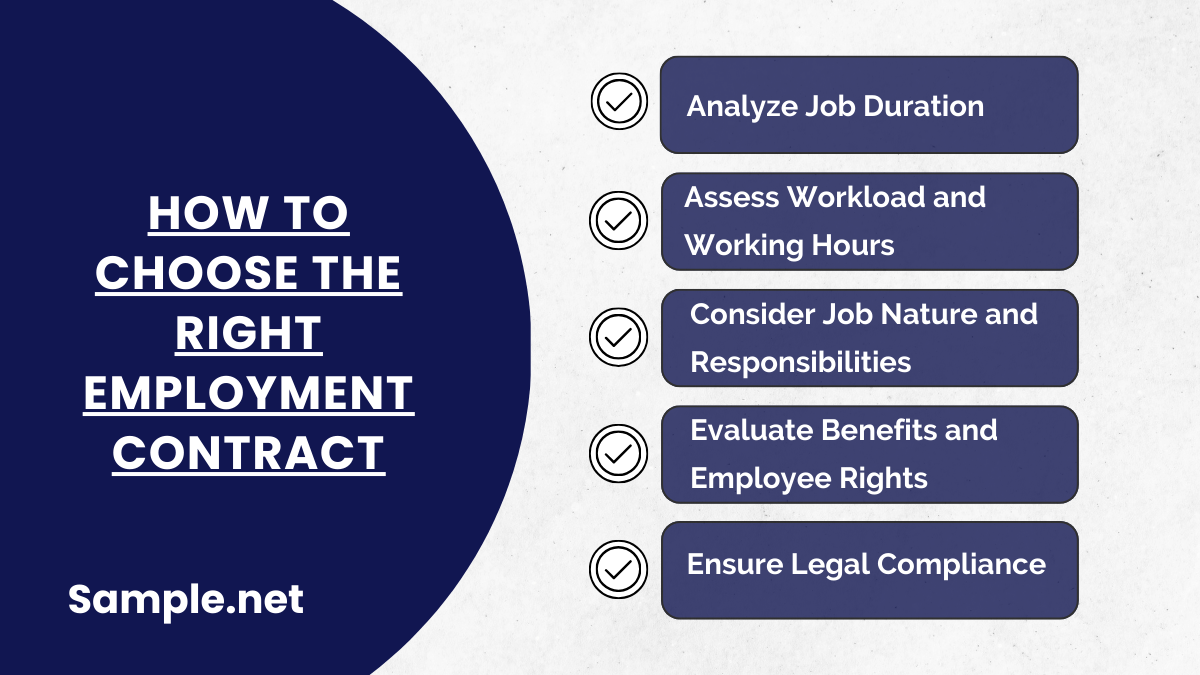
1. Analyze Job Duration
Determine whether the role is permanent, temporary, or project-based. For ongoing roles, choose a Permanent Contract. If it’s a short-term position, consider a Fixed-term Contract to match the project’s timeline or seasonal work requirements. You can also see more on University Employment Contract.
2. Assess Workload and Working Hours
Decide whether the position requires regular hours or flexible arrangements. For full-time positions, use a Full-time Contract. For fewer hours per week, opt for a Part-time Contract. If work varies, consider a Zero-hours Contract to provide flexibility.
3. Consider Job Nature and Responsibilities
Match the contract with the scope of job duties. A Freelance/Independent Contractor Agreement suits specific, project-based tasks. A Permanent Contract works for consistent roles requiring long-term commitment, ensuring regular employment terms.
4. Evaluate Benefits and Employee Rights
Choose a contract type that aligns with desired employee benefits. Permanent Contracts generally offer the most comprehensive benefits, such as paid leave, insurance, and retirement plans. Freelance Contracts usually focus on payment for deliverables without additional benefits. You can also see more on IT Company Contracts.
5. Ensure Legal Compliance
Review local labor laws to ensure that the contract complies with regulations regarding minimum wage, working hours, benefits, and termination terms. This protects both employer and employee, minimizing the risk of legal disputes.
Choosing the right employment contract is vital for a clear, fair, and productive working relationship. By considering job duration, workload, employee rights, and legal compliance, employers can select contracts that meet business needs while protecting employees’ rights. The right contract minimizes conflicts and ensures a stable and legally sound work environment. You can also see more on Remote Work Agreement.
FAQS
Why is it important to choose the right employment contract?
It ensures clarity in job roles, rights, and responsibilities. Proper contracts protect both parties legally. They also reduce misunderstandings.
What factors should be considered when choosing an employment contract?
Key factors include job duration, workload, legal compliance, and benefits. The contract should align with the job’s requirements. It ensures clear expectations.
Can an employment contract be changed later?
Yes, but changes require mutual agreement. Both parties must consent to modifications. Amendments should comply with labor laws.
Do freelancers need employment contracts?
Yes, freelancers should have contracts outlining project terms. It clarifies payment, deadlines, and deliverables. This protects both freelancer and client.
What should employers include in a freelance contract?
Include project scope, payment terms, deadlines, and intellectual property rights. Clear deliverables and dispute resolution clauses are also necessary. This ensures project clarity.
What happens if a contract violates labor laws?
It can lead to legal disputes or penalties. Employees may be entitled to compensation. Employers should regularly review contracts for compliance. You can also see more on Employment Contracts for Restaurants.
Can an employee refuse a contract type offered?
Yes, employees can negotiate contract terms. They may request changes to salary, benefits, or hours. Negotiation ensures mutual satisfaction.
What should employees check before signing a contract?
Employees should review salary, job description, working hours, and benefits. They should also check termination terms and restrictive clauses, like non-competes. Understanding all terms is crucial before agreeing. Legal consultation can be helpful for clarity. You can also see more on Scope of Work Contracts.
What are the consequences of breaching an employment contract?
Breaching a contract can lead to disciplinary actions, legal disputes, or termination. Employees may face financial penalties or lose certain benefits. Employers might need to pay damages or resolve disputes legally. It’s essential to follow contract terms strictly.
